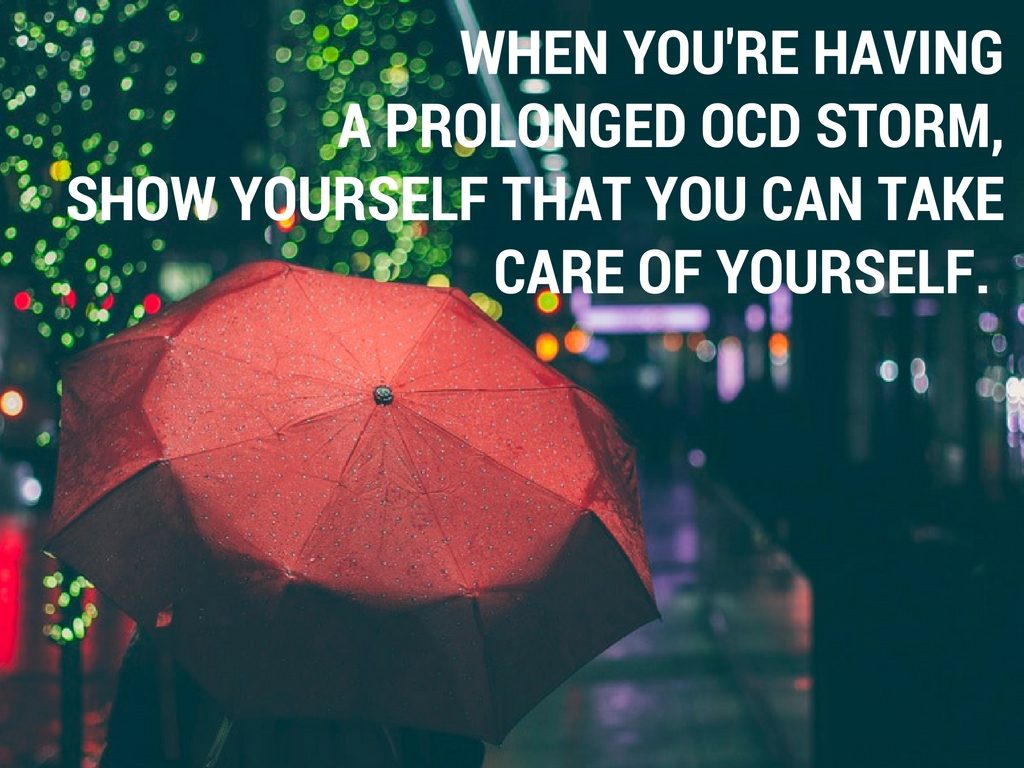When you’re upset, stressed, or anxious, do you know how to bring yourself back to normal? Whether you consider yourself an anxious person, whether you have OCD, or whether you have an above-average ability to think yourself in circles until you’re sweating from stress, we all occasionally feel outside ourselves with stress. Sometimes a mood takes over. Sometimes we’re just plain agitated. When this happens, do you know how to bring yourself back to normal? Do you know what you specifically can do that helps you shake it off?
Having some self-knowledge and knowing what specific things you can do that act as a re-set button is empowering. In fact, it may even be helpful to write down a list of what calms you down:
Tried-and-True Reset Button Remedies:
-Take a walk
-Get into nature
-Go running and listen to songs I have a happy, carefree association with
-Lose myself in my favorite comedian’s Instagram account
-Go somewhere where I know there are dogs, and ask to pet peoples’ dogs
-Watch an episode of a suspenseful, sucks-you-in TV show (like Breaking Bad or House of Cards) or a silly, escapist TV show (like Bob’s Burgers or It’s Always Sunny in Philadelphia)
-Put my phone on airplane mode and read a book
-Swiffer my apartment
-Clean out a junk drawer
-Fold all my clothes and reorganize my dresser drawers

Seriously, Make Your Own List
When your brain is spinning out of control, it’s hard to go from sixty to zero (like if you were to try meditating at a moment you felt like screaming). What’s helpful about a list like this is that these activities are active and refocus your attention. What’s helpful about having a list like this is that when you’re having a freak out, if you try one of these activities and you feel better, great! If you’re still feeling agitated, you can try another activity, and then try another until you’re back to normal.
It’s also helpful to know what activities don’t help when you’re feeling agitated or make you feel worse instead of better. Personally, I find that going to the gym only has a 50% chance of being helpful. Half the time, if I show up cranky or anxious, I leave doing the shuffle. It’s exactly what I needed. The other half of the time, being in a loud, echo-y space with tons of people in my personal bubble and forcing myself to try to change my mood makes me seethe. So, the gym is not on my list; I go to the gym when I feel okay and don’t try to use the gym to change my mood.
When you can successfully self-soothe in healthy ways and come back to normal on your own, it makes having a slightly volatile temperament feel a lot more manageable.
So, what’s on your list?











 What’s really neat about this exercise is that it provides pretty instant clarity.
What’s really neat about this exercise is that it provides pretty instant clarity. Marc Maron carries around his emotional baggage like a celebrity holds on to her oversized handbag. He is a recovered drug addict and alcoholic: he was addicted to cocaine when he was in his 20s, trying to break into comedy in Boston and New York. Today, he’s sober, and an Olympic-level overthinker. He describes the struggle of being too inside your own head as “thinky pain.”
Marc Maron carries around his emotional baggage like a celebrity holds on to her oversized handbag. He is a recovered drug addict and alcoholic: he was addicted to cocaine when he was in his 20s, trying to break into comedy in Boston and New York. Today, he’s sober, and an Olympic-level overthinker. He describes the struggle of being too inside your own head as “thinky pain.”